Arts Advocacy Alert!
 Analysis with recommendations – Technical corrections
Analysis with recommendations – Technical corrections
House Bill 338 (Comm. Substitute) – Restructure of GCA Membership & Policy Changes
HB 338 (Comm. Substitute) amends the enabling legislation of GA Council for the Arts Georgia Code of Laws §50-12-20, et seq.
Status: HB 338 was filed on 02.12.13 – pending hearing before Senate Econ. Dev. Comm.
Assigned to Senate Comm. on Econ. Dev. (Chair: Frank Ginn)
Feb/27/2013 – Senate Read and Referred
Feb/26/2013 – House Passed/Adopted By Substitute
Feb/26/2013 – House Third Readers
Feb/21/2013 – House Committee Favorably Reported By Substitute
Assigned House Comm. Econ. Dev. & Tourism (Ch Ron Stephens)
Feb/19/2013 – House Second Readers
Feb/14/2013 – House First Readers
Feb/13/2013 – House Hopper (Sponsored by (1) Wilkinson, Joe 52nd (2) Stephens, R 164th (3) Abrams, Stacey 89th (4) Parrish, Butch 158th (5) Carter, Amy 175th (6) Allison, Stephen 8th)
Legislation:
Current GCA statute, HB 338 & HB 338 (Committee Substitute) are on ArtsGeorgia website:
http://www.artsga.org/artsgeorgia/wp/advocacy/ga-council-for-the-arts/
Analysis:
Section 1. Findings and Policy
The clear intent of the pending legislation is to complete the realignment of the Georgia Council for the Arts from the Governor’s Office of Management and Budget to its new position within the Georgia Department of Economic Development. In 2011, House Bill 264 was limited in scope to provide only for the change in location; the pending legislation is “to clarify the role of the arts in economic development” with amendment to the legislative findings and the addition of duties in Section 4. The related litany of value to cultural tourism, community revitalization and work force defines a new limited role without acknowledgement of the intrinsic value of the arts, appreciation of artists or the joy of participation in the arts by the citizens of Georgia. Arts and culture are now about economic development and business.
Recommendation: Add language in the findings that acknowledges the intrinsic value of the arts to Georgia and its citizens. (e.g. The General Assembly finds that the arts have intrinsic value for Georgia, its communities and its citizens.)
Section 2. Establishment of the Council
The second most significant change to the status of the Council and its members is the Council is now specifically designated as an “advisory body” with the obvious ramifications as to their role.
Recommendation: Add language that members shall be referred to as the Georgia Council for the Arts, not as the Advisory Board, and that their role as Council is as an advisory body.
Section 3. Members, Terms, Chairperson
The most significant aspect of the legislation is the change in the total number of members. The Council is reduced from 32 members and a chair – to 12 members, being 9 councilmembers, 2 legislators, and a chair – all appointed by the Governor.
The term of a member is changed from a limit of two successive three-year terms with reappointment after a lapse of one year, to “councilmembers shall serve two three-year terms.” The language implies a member now has a six-year term without a requirement of a one-year lapse for reappointment to another six-year term or more. (emphasis added)
“The Governor shall appoint two ex officio members from the General Assembly.” The language is not clear whether one shall be appointed from the Georgia House and the other appointed from the Senate. The length of the term of these two members is not established except by implication that it also is six years; there is the possibility that the legislators could leave office or lose an election and still be a member of the Council, there is no provision addressing the issue.
The Chair will now be appointed annually with their term ending on June 30. This is similar to the existing statute with the Chair appointed on July 1 for a term ending on June 30; both limit the Chair to a one year term. Recent history has been that the Chair is never officially appointed, and there is no language in the current law or the pending legislation that they serve until their successor is appointed.
Likewise, there is no provision in the legislation that upon the expiration of a member’s term that they shall continue to serve until their successor is appointed. This will potentially continue the practice of having lame duck members, whose service could be challenged and their votes on important matters challenged or negated.
“A majority of the members appointed to the council shall constitute a quorum.” The legislation does not clearly establish if the two ex officio members from the General Assembly (who are appointed) are counted in a determination of whether there is a quorum, or if they are voting or non-voting members.
Recommendation: Amend the language to clarify the length of a member’s term and limit the number of terms a member may serve to two.
Add a provision that either includes the Speaker of the House and the Lt. Governor in the process for the selection of the two members from the General Assembly, or specify that one shall be appointed from each body. Add a provision that determines the length and limit of their term and provide for their term and service to end with their departure from the General Assembly.
Add a provision that provides for whether ex officio members are voting or non-voting members and whether they count in the determination of a quorum.
Section 4. Powers & Duties
This section contains additional provisions as part of complete realignment of the Council with the Dept. of Econ. Development.
Recommendation: Add language that provides members of council with the assistance of staff shall make an annual recommendation each year as part of the budget cycle to the Commissioner and the Governor for the Arts Council’s annual budget.
Miscellaneous: Effective date and implementation of HB 338
Recommendation: The legislation should include a provision establishing an effective date upon its passage and signing by the Governor rather than deferral until a July 1 effective date. There are only two current councilmembers, and hold over members (without provision for their service until their successors are appointed). If effective upon signature, the Governor can make the necessary appointments to council, they can begin their orientation, their consideration of pending business and the required approval of the FY14 grants.
[ Policy & Membership Changes Overview – Feb 20, 2013 on ArtsGeorgia Facebook]
ArtsGeorgia is a National CoSponsor of Arts Advocacy Day, April 8-9, 2013 Washington, D.C. National CoSponsors help shape the legislative platforms and messages for Arts Advocacy Day. Advocating “Strength Through Unity” at the local, state and national level, ArtsGeorgia continues to enhance its strategic leadership in arts advocacy, delivery of the news and reliable communication options for the Georgia arts community.
http://www.artsga.org/artsgeorgia/wp/advocacy/arts-tags/
 March 7, 2013
·
March 7, 2013
·  admin ·
admin ·  No Comments
No Comments
 Posted in: Advocacy, All
Posted in: Advocacy, All





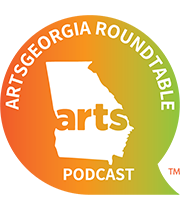
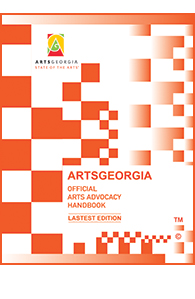


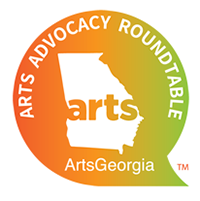
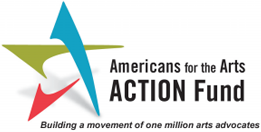
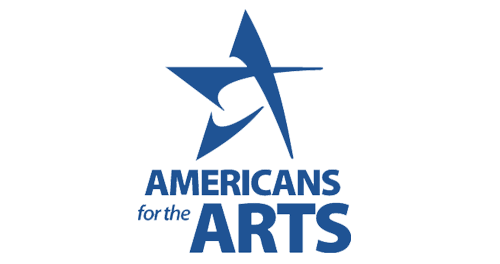


Leave a Reply